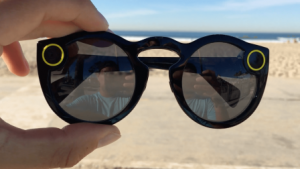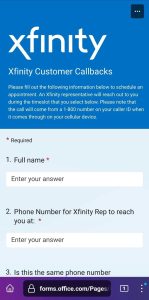Here’s how segmentation, personalization, automation and design can improve your email marketing results, regardless of your current ESP.

I’m pretty frequently asked some version of this question: “How can we get more out of {ESP name}?” Before I launch into my answers, I’ll say this: it’s very, very rarely about the ESP.
I don’t mean to diminish the differences between ESPs or that some ESPs make it easier to work the levers that can truly empower great email campaigns. But I’ll also say that in my decade-plus of experience in email marketing, I’ve learned that no matter your ESP, you can drive incredible growth increases by dialing in four core initiatives:
- Segmentation.
- Personalization.
- Automation.
- Design.
What goes into each, you ask? Let’s dive in.
Keys to email audience segmentation
I like to start with segmentation because doing it well has a big bonus: it puts you in a better position to stay on the right side of Gmail’s spam guidelines.
Poor email engagement often occurs because brands fail to segment audiences and send messages to the most relevant subscribers. This is true in terms of a subscriber’s characteristics and the type of content they seek. In other words, a subscriber who does not have children in their home will rarely interact with products or articles aimed at parents.
Similarly, our brands have found that on their list, certain subscribers love engaging with contests and similarly larger segments that tune out contests, even when they are highly relevant to their interests. Capturing that information about your subscribers and building behavior-based and demographic-based segments lets you send more relevant, engaging emails to each segment.
And about those spam guidelines? Segmenting your least-engaged audience and minimizing sends to them is a simple way to stay below red-flag spam thresholds.
Keys to successful email personalization
If you’ve worked in email marketing for any length of time, you’ve heard “personalization” so much it might have lost all meaning. To me, personalization means that you build processes to deliver on personalization without requiring design or development support on each email.
As far as the elements to personalize, think through each email’s content and design and decide:
- What subject line and preview text will most likely get somebody to open this email? (The best email design won’t get engagement if nobody opens it, of course.)
- Has the subscriber shown an affinity to engage with different media types in the email? Can you create more multimedia experiences if the user shows a preference for them?
- On the most basic level of personalization, can you seamlessly insert the person’s first name, loyalty status and any content recommendations relevant to their demographics or past behavior?
- Has this person shown a strong preference for discounts and what are the most relevant offers and products you can include that will accommodate this preference?
Ways to use automation to increase email engagement
One massively overlooked key to increasing your email engagement is sending the right email to the right person at the right time. Assuming you’ve built segments and incorporated personalization elements as outlined above, you can achieve great results by incorporating automation.
Automation can help you find the right time of day and day of week to send one-off emails. You can achieve even more impact by setting up automated triggers to send follow-up messages that make sense based on recent engagement.
In my experience, triggered journeys based on engagement with the brand consistently have the strongest open, click and conversion rate metrics. We are consistently working with brands to build out more journeys and automations to increase the number of automated sends to support recent engagements and deliver increased value and relevancy to subscribers.
If journeys are new to you, the best place to start is — naturally — the welcome journey, where you can set yourself up to collect signals on behavior that you can use for profiling and segmentation in later campaigns. If you’re a CPG brand that sells meat products, for instance, and a new user engages more with chicken-related content than content for any other meat, make sure subsequent emails show some of your most popular chicken recipes.
Design techniques that increase email engagement
Build a repository of techniques you’ve used that get good engagement within your emails, but here are a few thought starters:
- Test multimedia, such as compelling imagery, cues to engage like a play button over videos or eye-catching screengrabs that link to longer videos.
- Test CTAs and see if you can identify patterns by audience segments.
- Make sure your UX is clean and streamlined. For instance, if you’re offering discounts to your discount-friendly segments, make it clear exactly where to click to take advantage of your offers.
The next time anyone on your team (or, for that matter, anyone in ESP sales) starts talking to you about the full functionality of your ESP and whether you’re using it to its potential, find a way to gracefully redirect that conversation into an audit of the four initiatives above.
If you find out that you are nailing those, then the question of how your ESP is helping you find incremental growth is the right one — and you’re also far ahead of the curve in the email marketing world.
The post 4 ways to increase email engagement with your current ESP appeared first on MarTech.
(2)







